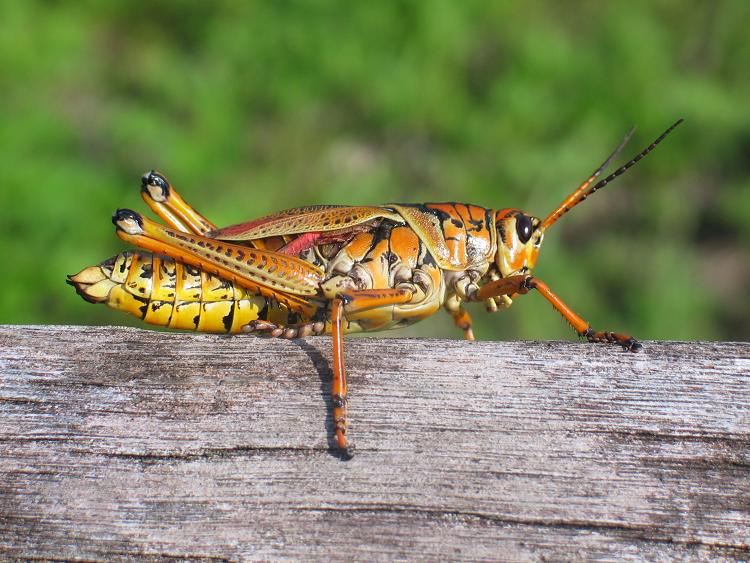Hymenoptera
Honey Bee (Apis)
Order: Hymenoptera
Where found: Worldwide
Description: Honey bees (or honeybees) are a subset of bees which represent a far smaller fraction of bee diversity than most people suspect; of the approximately 20,000 known species of bees, there are only seven presently-recognized species with a total of 44 subspecies (Engel, 1999; historically, anywhere from six to eleven species have been recognized). These bees are the only living members of the tribe Apini, all in the genus Apis, and all of which produce and store liquified sugar ("honey") to some degree, and construct colonial nests out of wax secreted by the workers in the colony. Other types of related bee produce and store honey, but only members of the genus Apis are considered true honey bees.
Odonata
Green Darner (Anax junius)
Where found: North America
Description: is one of the biggest and fastest-flying dragonflies, able to reach speeds of 85 km/h (55 mph). This species has several nicknames, including "Darning Needle" for its speed, "Mosquito Hawk" for its predatory habits, and "Lord of June" for its abundance during the summer season. It is also Washington State's state insect.
Common Whitetail (Libellula lydia)
Where found: The Common Whitetail or Long-tailed Skimmer is a common dragonfly across much of North America.
Description: The male's chunky white body (about 5 cm long), combined with the brownish-black bands on its otherwise translucent wings, give it a checkered look. Females have a brown body, and are less noticeable, though they have a similar wing pattern. The Common Whitetail can be seen hawking for mosquitoes and other small flying insects over ponds, marshes, and slow-moving rivers in most regions except the higher mountain regions.
Orthoptera
Eastern lubber grasshopper (Romalea guttata)
Where found: Found in the southeastern and south central portion of the United States.
Description: The Eastern lubber grasshopper is the most distinctive grasshopper species within the southeastern United States, and is well known both for its size and its unique coloration.



